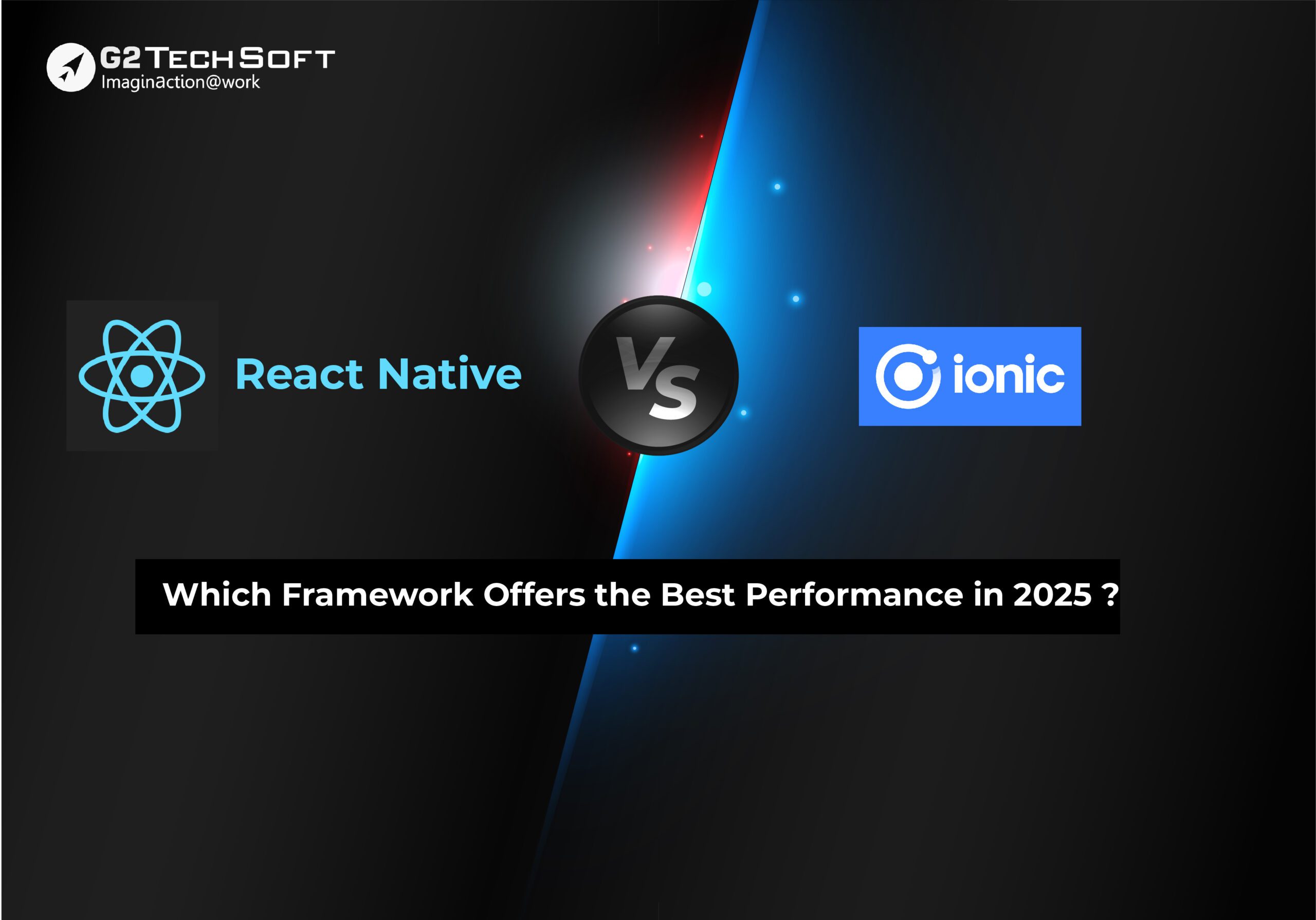
Best Angular.js Alternatives: Top Frameworks To Elevate Your Web Development
AngularJS, once a dominant player in the web development landscape, has now reached its end of life, leaving many developers and organizations in search of effective AngularJS alternatives.
As modern web technologies evolve at a rapid pace, the demand for frameworks that offer enhanced scalability, performance, and user-friendliness has surged.
This article delves into the best AngularJS alternatives available in 2024, providing a comprehensive overview to assist businesses and developers in selecting the right framework tailored to their specific needs.
Must-Have Features When Choosing an AngularJS Alternative
When considering an AngularJS replacement, here are several must-have factors to evaluate:
Performance:
A top priority should be performance. Look for frameworks that offer rapid rendering and minimal load times, as these attributes significantly enhance the user experience.
Frameworks like React and Vue.js leverage virtual DOM techniques to optimize rendering speed, making them strong contenders in this category.
Scalability:
The chosen framework must demonstrate scalability to accommodate both small projects and complex enterprise applications. This flexibility is crucial as your project evolves.
Frameworks such as Angular, React, and Svelte excel in this area, enabling developers to build applications that can grow seamlessly.
Community Support:
A robust community support system is essential for long-term success. A large and active community around a framework ensures access to valuable resources, libraries, and frequent updates.
For instance, React boasts a vast ecosystem of tools and libraries, making it one of the top AngularJS frameworks available today.
Learning Curve:
The learning curve associated with a framework can significantly impact your team’s productivity. Depending on your developers’ expertise, you may prefer a framework that is easier to learn and adopt.
For example, Vue.js is often praised for its straightforward syntax and gentle learning curve compared to AngularJS.
Tooling And Ecosystem:
Lastly, consider the tooling and ecosystem surrounding the framework. Strong development tools, libraries, and plugins can greatly enhance productivity.
Frameworks like React and Vue.js provide extensive ecosystems with numerous libraries that facilitate various aspects of web development, from state management to routing.
Top 5 AngularJS Alternatives: Advantages And Best Use Cases
1. React.js: Popular And Scalable
React.js, developed and maintained by Facebook, is renowned for its flexibility and robust community support. Its component-based architecture allows for exceptional scalability, making it particularly well-suited for dynamic, single-page applications (SPAs).
Advantages:
- Virtual DOM: This feature ensures rapid updates by only rendering components that have changed, significantly enhancing performance.
- Strong Developer Tools: React offers a rich ecosystem of tools that streamline development processes.
- SEO-Friendly: React’s architecture allows for better search engine optimization compared to many other JavaScript frameworks.
Use Cases: Ideal for large-scale dynamic applications, such as social media platforms or e-commerce sites, where user interaction and real-time updates are crucial.
2. Vue.js: Lightweight And Easy To Integrate
Vue.js is prominently known for its simplicity and ease of integration into already existing projects. Its lightweight nature makes it an ideal pick for smaller applications and rapid prototyping.
Advantages:
- Simple Learning Curve: Developers can quickly get up to speed, making it accessible for teams with varying levels of expertise.
- Small Footprint: Its minimal size ensures faster load times.
- Flexibility: Vue.js can be easily integrated with other projects or libraries, allowing for versatile application development.
Use Cases: Perfect for small to medium-sized applications, such as dashboards or content management systems, where quick deployment is essential.
3. Svelte: Cutting-Edge Performance
The Svelte framework takes a unique approach by compiling components at build time rather than using a virtual DOM. This results in highly efficient applications that require less runtime overhead.
Advantages:
- No Runtime Overhead: Svelte eliminates the need for a virtual DOM, leading to faster performance.
- Reduced Boilerplate Code: Developers can write less code while achieving more functionality.
Use Cases: Excellent for performance-focused applications, such as real-time data visualizations or interactive web apps that demand high responsiveness.
4. Ember.js: Comprehensive For Large Projects
Ember.js is designed with a “convention over configuration” philosophy, making it a powerful tool for large teams working on substantial applications. It provides clear guidelines that facilitate collaboration.
Advantages:
- Strong Conventions: This helps maintain consistency across large codebases.
- Rich Toolset: Ember comes with built-in tools that simplify development tasks.
- Integrated Testing Frameworks: Ensures robust testing capabilities right out of the box.
Use Cases: Best suited for large-scale enterprise applications, such as customer relationship management (CRM) systems or complex web platforms requiring detailed organization.
5. Backbone.js: Minimal And Flexible
Backbone.js offers a minimalistic structure that provides developers with significant flexibility in how they architect their applications. It’s particularly useful when developers want more control over their app’s structure.
Advantages:
- Lightweight Framework: Backbone’s core library is small, making it easy to include in projects without adding significant overhead.
- Flexible Architecture: Developers can implement custom architectures tailored to specific project needs using its straightforward MVC (Model View Controller) pattern.
Use Cases: Suitable for smaller applications that require custom architecture, such as simple web apps or prototypes where speed and flexibility are paramount.
These frameworks represent some of the best AngularJS alternatives, each offering unique advantages suited to different project requirements.
Whether you’re comparing options like React vs AngularJS, exploring the differences between Angular vs Vue, or considering the innovative approach of the Svelte framework, understanding these alternatives will perfectly help you make decisions in your web development journey.
Additional AngularJS Alternatives You Should Consider:
1. Mithril.js:
Mithril.js is a lightweight JavaScript framework designed for building single-page applications (SPAs). With a small footprint and fast performance, it stands out as an efficient choice for developers.
Advantages:
- Minimal Learning Curve: Mithril’s straightforward API makes it accessible for developers of all skill levels.
- Fast Performance: Its efficient rendering capabilities ensure quick updates, making it ideal for applications where speed is critical.
- Built-in Routing: This has routing utilities out of the box, streamlining the development of SPAs.
Use Cases: Best suited for SPAs and applications that prioritize speed, such as dashboards or real-time data applications.
2. Polymer.js:
Developed by Google, Polymer.js focuses on creating reusable components and is particularly effective for building modern web applications using Web Components.
Advantages:
- Strong Focus On Web Components: Polymer allows developers to create encapsulated, reusable components that enhance modularity.
- Reusable Elements: Its component-based structure promotes code reuse and simplifies maintenance.
Use Cases: Ideal for modern web applications that require a component-based architecture, such as interactive web platforms or complex user interfaces.
3. Alpine.js
Alpine.js is a minimalistic framework that enables developers to write reactive code with minimal overhead. It’s often viewed as a lightweight alternative to Vue.js.
Advantages:
- Easy To Learn: With its simple syntax, Alpine.js allows developers to quickly implement interactivity without extensive training.
- Seamless Integration With HTML: It integrates effortlessly into existing HTML structures, making it easy to enhance static pages with dynamic behavior.
Use Cases: Perfect for small applications or scenarios where you want to add reactivity to static pages, such as enhancing forms or creating simple interactive elements.
How To Select The Right AngularJS Replacement For Your Project
Consider Your Team’s Expertise:
Assessing your team’s familiarity with various frameworks is crucial. If your developers have experience with a particular framework, such as React or Vue.js, leveraging that existing knowledge can significantly speed up development.
Staying within their comfort zone not only boosts productivity but also enhances the quality of the final product.
Project Scale And Complexity:
The scale and complexity of your project play a vital role in framework selection. For larger projects that demand a structured approach, frameworks like Ember.js are ideal due to their comprehensive architecture and built-in conventions.
Conversely, if you’re working on smaller applications or prototypes, lightweight frameworks such as Vue.js or Svelte may be more suitable, providing the flexibility needed for rapid development without unnecessary overhead.
Long-Term Maintenance:
Choosing a framework with strong community support is essential for long-term viability. A vibrant community ensures access to resources, updates, and security patches, which are critical for maintaining your application over time.
Frameworks like React and Vue.js boast extensive ecosystems that can facilitate ongoing development and support.
Performance Needs:
Finally, consider the performance requirements of your application. For projects where speed is paramount, frameworks like Svelte or Mithril.js may offer significant advantages due to their efficient rendering processes and minimal runtime overhead.
These frameworks excel in performance-critical environments, ensuring that user experiences remain smooth and responsive.
Final Verdict:
The range of AngularJS alternatives is growing, giving developers and businesses great tools to create modern, scalable, and high-performance applications.
Larger projects may work better with structured frameworks like Ember.js, while smaller apps can benefit from lightweight AngularJS alternatives like Vue.js or Svelte.
Knowing your specific needs will help you find the best AngularJS replacement among the top AngularJS frameworks available today.




